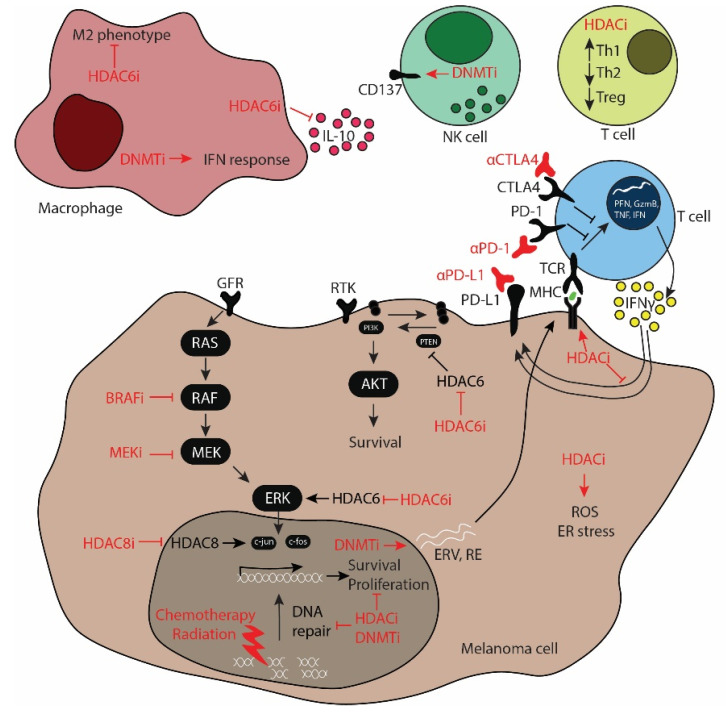Figure 1.
Modulatory effects of epigenetic modifiers in cellular (intrinsic) and immunological (extrinsic) processes. The modulatory effects of HDAC and DNMT inhibitors (HDACi and DNMTi, respectively) in extrinsic factors include the regulation of Th1, Th2, and Treg functions, NK (natural killer) cell activation through CD137, the protumoral M2 macrophage phenotype, secretion of anti-inflammatory cytokines such as interleukin-10 (IL-10), and the stimulation of the interferon (IFN) response. Epigenetic drugs modulate key cellular pathways in melanoma cells. The MAPK pathway activated by GFR (growth factor receptor) signaling activates RAS, RAF, MEK, ERK, c-jun, and c-fos, which regulate the expression of survival and proliferation genes. Similarly, the PI3K/AKT pathway activated by RTKs (receptor tyrosine kinases) leads to the activation of PI3K (PI3 kinase), which then activates AKT and promotes survival. HDACi and DNMTi also modulate the immunogenicity of melanoma cells via increasing antigen presentation in MHC (major histocompatibility complex) and increasing the expression of ERVs (endogenous retroviruses) and RE (repetitive elements), which activates the T cells. Upon activation through TCR (T cell receptor) signaling, T cells release TNF (tumor necrosis factor), GzmB (granzyme B), PFN (perforin), and IFN. HDACi regulate the expression of immunosuppressive genes such as PD-L1 (programmed cell death ligand 1), which can be blocked using anti-PD-1 (programmed cell death 1) antibodies. HDACi generate ROS (reactive oxygen species) and induce ER (endoplasmic reticulum) stress. Additionally, HDACi and DNMTi synergize with radiation therapy and chemotherapy via inhibition of the DNA repair machinery, eventually leading to cell death.

